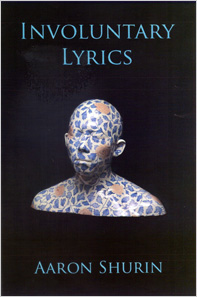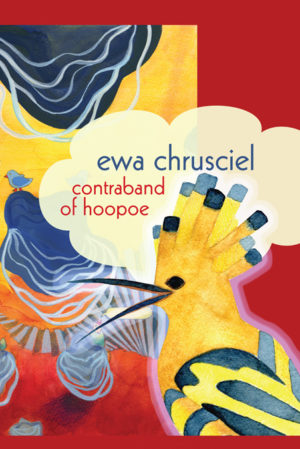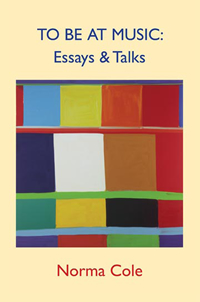Description
With Involuntary Lyrics, we see Aaron Shurin again at the vanguard of lyric eloquence and ethical rigor as he audaciously uses one of the seminal sonnet sequences in the history of English love poetry to extend the limits of current innovative practice. Shurin’s position—the sharply etched immediacy of his experience—is unabashedly that of a sexually active gay man in contemporary America, yet—and, in fact, because of—the exactitude of his insights into this subject matter, the risks and revelations of his vision extend our own sense of what it means to be human. His deft reflections show us how much the involuntary expression of language is suffused with cultural intent, how much the rhythms of the past permeate the present—and how many lost friends, lovers, opportunities, can be heard in the music of the current moment, if we listen with the kind of lyric attention that Shurin brings to language. Formally, the poems in Involuntary Lyrics press every aspect of poem’s surface tensions into the service of a music that extends our appreciation of the ways a poem can mean. Shurin shifts between the taut and the tangential in his elastic use of the line, but always deploying to full advantage the line’s end as fulcrum to catch the shifting center within every poetic proposition. Because Shurin uses the end words from Shakespeare’s sonnets, the cadence of these poems is charged with an elegiac longing, a classical resonance that only heightens the power of Shurin’s socially conscious, subversively sensual subject matter. At each line’s turn, Shurin balances the trace memory of poetic history against the charged physicality of contemporary event.
About the Author
Reviews
Excerpt
Aaron Shurin is an American poet, essayist, and educator. Since 1999, he has co-directed the Master of Fine Arts in Writing Program at the University of San Francisco. Aaron Shurin received his M.A. in Poetics from New College of California, where he studied under poet Robert Duncan. He is a recipient of California Arts Council Literary Fellowships in poetry (1989, 2002), and a NEA fellowship in creative nonfiction (1995). Shurin is the former Associate Director of the Poetry Center & American Poetry Archives at San Francisco State University. He is the author of over ten books, including A’S DREAM (O Books, 1999), NARRATIVITY (Sun & Moon Press, 1990), Unbound: A Book of AIDS (Sun & Moon Press, 1997), THE PARADISE OF FORMS: SELECTED POEMS (Talisman House, Publishers, 1999), A DOOR (Talisman House, Publishers, 2000), INVOLUNTARY LYRICS (Omnidawn Publishing, 2005), KING OF SHADOWS (City Lights Publishers, 2008) and CITIZEN (City Lights Publishers, 2011).
The emotional and formal complexity of Involuntary Lyrics engages us on various prosodic and semantic registers. This collection ‘unrings’ the reader at every textual moment, allowing the ‘torque one feels in the body of thought’ to flower in what Shurin names ‘the tension of attention’. Besides attending ‘Day’s duties’, his business is to sing the ways in which the bow bends the taut strings of reception and to love the language of what takes hold. Involuntary Lyrics is a necessary, innovative collection that illuminates what it means ‘to be’.
Do you know that experience where you sit down with a new CD & understand within its first few bars that your whole idea of music needs to change? Or where you go to the cinema and realize that your idea of what film can be is about to be transformed completely even after just the first few frames of whatever great movie? That was how I felt reading this first poem, entitled “I” – the numeral, not the letter – the first of 80-some sonnets gathered together in Aaron Shurin’s brand new Involuntary Lyrics, just out from Rusty Morrison’s Omnidawn Press. This is not the first time that a book by Shurin has filled me with awe, even envy.
In Involuntary Lyrics, there’s an ease about the poems, as though Shurin’s opened up his forms to let a breeze in. The form still informs the work, as controlling as ever: “Each ‘Involuntary Lyric’ ends its lines with the same words as a correspondingly numbered Shakespeare sonnet,” explains Shurin in the volume’s “Foot Note,” but the poet has shuffled these rhyme-words out of sequence “to spring their traps.”
Shurin uses form as a springboard to discover his subject rather than the other way around. In Shurin’s case, form liberates, rather than restrains. But he is in no way inhibited from stretching the form to its limits, in order to, in Shurin’s own words, ‘unring the sonnet’.
XCIV.
I measured your excellence
from the beginning (& it was all about measure) by the way it snapped a smile gap-toothed where none
was thought possible sweet
in a spurt like electric show
nervy joy I could die
from that surprised delight (just twenty, not yet a poet). The hot stone
by which “one takes petal to rock and blesséd” was constantly there to meet
your urging slow
dignity
up from where the graces
speak colloquial but perform deeds
balletic of attention expense—
ive beyond counting though dressed in funky weeds
one saw rapt only their blazing faces.
for Denise Levertov




